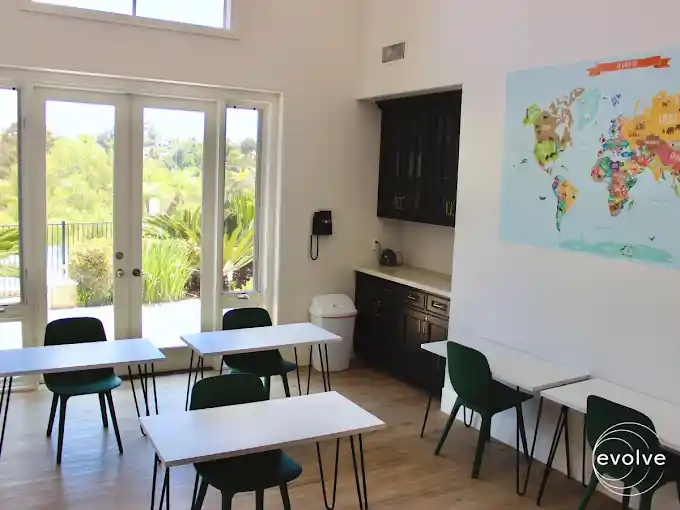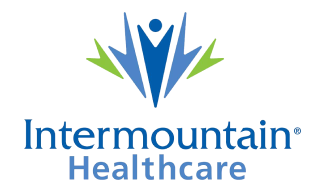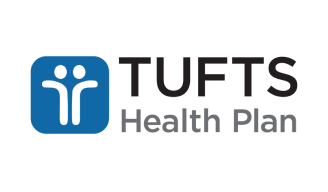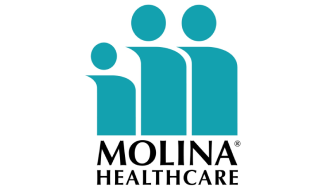Encinitas, California, United States
Evolve Teen Treatment - Encinitas
Claimed
Claimed
Recovery.com has connected directly with this treatment provider to validate the information in their profile.
CARF Accredited
CARF stands for the Commission on Accreditation of Rehabilitation Facilities. It's an independent, non-profit organization that provides accreditation services for a variety of healthcare services. To be accredited means that the program meets their standards for quality, effectiveness, and person-centered care.
Provider's Policy
We work with most private insurance companies on an in-network and out-of-network basis. We talk to your insurance provider and advocate for you to maximize your benefits at every level of care. Call our admissions team or visit us online for a free verification of benefits.
Estimated Cash Pay Rate
The cost listed here ($60,000+) is an estimate of the cash pay price. Center pricing can vary based on program and length of stay. Contact the center for more information. Recovery.com strives for price transparency so you can make an informed decision.
About Evolve Teen Treatment - Encinitas
Evolve Encinitas is a comprehensive residential treatment program that offers personally tailored treatment with solution-focused and evidence-based methods for up to 6 teens aged 12-17 at a time. Situated in spacious and luxury homes, clients have access to private or shared rooms, nutritious chef-prepared meals, computers to participate in 2 hours of schooling Monday-Friday, and amenities such as a pool, fitness center, and outdoor lounge space. Their facility is licensed and staffed 24/7, offering clients a safe and structured therapeutic environment conducive to healing. Their dual-diagnosis program specializes in the treatment of mental health, addiction, and co-occurring disorders using a combination of methods including group therapy, family therapy, motivational interviewing (MI), cognitive behavioral therapy (CBT), and dialectical behavior therapy (DBT). As part of a thorough admissions process, experienced clinicians provide an extensive and thorough assessment which results in clients receiving a personally tailored treatment plan that is regularly monitored and updated as needed to meet each teen’s unique treatment needs and goals.
What They Treat
Evolve treats a wide range of mental health disorders, substance abuse disorders, and co-occurring disorders.
Mental health and behavioral disorders include anxiety, depression, self-harm or suicidal ideation, post-traumatic stress disorder (PTSD) or trauma, bi-polar and other mood disorders, gender dysphoria, disordered eating, borderline and other personality disorders, mood or behavioral dysregulation, obsessive compulsive disorder (OCD), and psychosis.
They offer comprehensive treatment for substance abuse disorders including alcohol, cannabis, opioids, prescription medications including stimulants or sedatives, synthetic drug use with hallucinogens and stimulants, and tobacco-related disorders.
Their dual-diagnosis treatment facility is also capable of treating those struggling with co-occurring mental health and substance abuse disorders. They also offer treatment to teens who are diagnosed with high-functioning autism spectrum disorder (ASD) who have a co-occurring substance abuse or mental health disorder.
Experiential Therapy
In addition to evidence-based methods, the clinician-led treatment methods at Evolve include a range of experiential therapies. Equine-assisted therapy is a therapeutic tool that can be used to break down barriers and resistance to the therapeutic process through working with horses. Art therapy may be used as a peaceful and relaxing activity that reduces stress, improves self-awareness, and helps patients process past traumas. Expressive therapies such as music and dance therapy can boost mood, increase general wellbeing, and body image, while drama therapy can improve communication and relationship skills and help teach empathy. Accredited instructors lead surf therapy, using surfing as a transformative experience that can develop executive functioning skills, practice social skills, and teach stress management techniques. Hiking is a form of nature therapy used to promote positive self image, a new way to respond to others and one's environment, and better equip individuals to respond to the challenges of daily life. Weekly yoga sessions and physical activity in fitness centers are also offered at Evolve.
Clients can also participate in weekly outings that include trips to the beach, movies, hiking trails, miniature golfing, and museums, used to model how to experience the world and serve as a special bonus for hard work and achievements.
Evidence-Based Care
The compassionate and professional clinical team at Evolve lead evidence-based therapies for clients and their families through individual, group, and family therapy sessions. Specializing in dialectical behavior therapy (DBT), Evolve goes to great lengths to ensure their programs adhere to the structures and philosophies of DBT, with clients participating in 4 DBT groups per week. Cognitive behavioral therapy (CBT) is also used as an effective treatment for depression, anxiety, substance use, and eating disorders, assisting clients in changing unhelpful thought patterns. Motivational interviewing (MI) is used to meet clients where they are currently, and help identify personal goals and priorities in life and find their personal motivation to make behavioral changes. Mindfulness is another evidence-based technique that is incorporated into all areas of treatment, used to assist teens in being mindful of the present moment and reach acceptance without judgment, replacing mindlessness with awareness.
Other treatment methods used for substance abuse and co-occurring disorders include seeking safety, relapse prevention, anger management, meditation, and life skills.
Family therapy and family support groups are also part of the comprehensive treatment offered at Evolve, enabling family members to be an involved part of the treatment process and collaborate with care providers.
Evolve are Joint Commission and CARF Accredited facilities, and accept most major insurances.
Read More

Insurance Accepted
Provider's Policy:We work with most private insurance companies on an in-network and out-of-network basis. We talk to your insurance provider and advocate for you to maximize your benefits at every level of care. Call our admissions team or visit us online for a free verification of benefits.

Center Overview
Estimated Cash Pay Rate
Adolescents
Teens receive the treatment they need for mental health disorders and addiction, with the added support of educational and vocational services.
LGBTQ+
Addiction and mental illnesses in the LGBTQ+ community must be treated with an affirming, safe, and relevant approach, which many centers provide.

Treatment Focus
You can admit to this center with a primary substance use disorder or a primary mental health condition. You'll receive support each step of the way and individualized care catered to your unique situation and diagnosis.

Care Options








Treatment
Specializations
Adolescents
Teens receive the treatment they need for mental health disorders and addiction, with the added support of educational and vocational services.
Personality Disorders
Personality disorders destabilize the way a person thinks, feels, and behaves. If untreated, they can undermine relationships and lead to severe distress.
Anxiety
Anxiety is a common mental health condition that can include excessive worry, panic attacks, physical tension, and increased blood pressure.
Depression
Symptoms of depression may include fatigue, a sense of numbness, and loss of interest in activities. This condition can range from mild to severe.
Suicidality
With suicidality, a person fantasizes about suicide, or makes a plan to carry it out. This is a serious mental health symptom.
Approaches
Evidence-Based
A combination of scientifically rooted therapies and treatments make up evidence-based care, defined by their measured and proven results.
Individual Treatment
Individual care meets the needs of each patient, using personalized treatment to provide them the most relevant care and greatest chance of success.
Twelve Step
Incorporating spirituality, community, and responsibility, 12-Step philosophies prioritize the guidance of a Higher Power and a continuation of 12-Step practices.
Therapies
1-on-1 Counseling
Patient and therapist meet 1-on-1 to work through difficult emotions and behavioral challenges in a personal, private setting.
Meditation & Mindfulness
A practiced state of mind that brings patients to the present. It allows them to become fully aware of themselves, their feelings, and the present moment.
Art Therapy
Visual art invites patients to examine the emotions within their work, focusing on the process of creativity and its gentle therapeutic power.
Dance Therapy
This experiential therapy uses dance to improve body awareness, physical health, and social skills.
Equine Therapy
Guided interactions with trained horses, their handler, and a therapist can help patients improve their self-esteem, trust, empathy, and social skills.
Experiential Therapy
With this approach, patients heal by doing. Therapists help patients process difficult emotions to speak, using guided activities like art or dance.
Family Therapy
Family therapy addresses group dynamics within a family system, with a focus on improving communication and interrupting unhealthy relationship patterns.
Life Skills
Teaching life skills like cooking, cleaning, clear communication, and even basic math provides a strong foundation for continued recovery.
Motivational Interviewing
Based on the idea that motivation to change comes from within, providers use a conversational framework to discover personalized methods for change.
Conditions We Treat
Personality Disorders
Personality disorders destabilize the way a person thinks, feels, and behaves. If untreated, they can undermine relationships and lead to severe distress.
ADHD, ADD
ADHD is a common mental health condition caused by dopamine imbalance. Common symptoms include inattention, hyperactivitiy, and impulsivity.
Anger
Although anger itself isn't a disorder, it can get out of hand. If this feeling interferes with your relationships and daily functioning, treatment can help.
Anxiety
Anxiety is a common mental health condition that can include excessive worry, panic attacks, physical tension, and increased blood pressure.
Bipolar
This mental health condition is characterized by extreme mood swings between depression, mania, and remission.
Depression
Symptoms of depression may include fatigue, a sense of numbness, and loss of interest in activities. This condition can range from mild to severe.
Eating Disorders
An eating disorder is a long-term pattern of unhealthy behavior relating to food. Most people with eating disorders have a distorted self-image.
Gaming
Compulsive gaming is most often a problem for children and teens. The disorder can affect physical health, sleep, and the ability to focus at school.
Obsessive Compulsive Disorder (OCD)
OCD is characterized by intrusive and distressing thoughts that drive repetitive behaviors. This pattern disrupts daily life and relationships.
Substances We Treat
Alcohol
Using alcohol as a coping mechanism, or drinking excessively throughout the week, signals an alcohol use disorder.
Benzodiazepines
Benzodiazepines are prescribed to treat anxiety and sleep issues. They are highly habit forming, and their abuse can cause mood changes and poor judgement.
Chronic Relapse
Consistent relapse occurs repeatedly, after partial recovery from addiction. This condition requires long-term treatment.
Co-Occurring Disorders
A person with multiple mental health diagnoses, such as addiction and depression, has co-occurring disorders also called dual diagnosis.
Cocaine
Cocaine is a stimulant with euphoric effects. Agitation, muscle ticks, psychosis, and heart issues are common symptoms of cocaine abuse.
Drug Addiction
Drug addiction is the excessive and repetitive use of substances, despite harmful consequences to a person's life, health, and relationships.
Ecstasy
Ecstasy is a stimulant that causes intense euphoria and heightened awareness. Abuse of this drug can trigger depression, insomnia, and memory problems.
Heroin
Heroin is a highly addictive and illegal opioid. It can cause insomnia, collapsed veins, heart issues, and additional mental health issues.
Psychedelics
Hallucinogenic drugs—like LSD—cause euphoria and increased sensory experiences. When abused, they can lead to depression and psychosis.
Aftercare
Experience
Personal Amenities
Amenities
Special Considerations
Healthy Meals are provided
Great food meets great treatment, with providers serving healthy meals to restore nutrition, wellbeing, and health.
LGBTQ group
Group therapy unites LGBTQ+ patients in a safe and culturally competent setting, encouraging peer support under the expert leadership of a therapist.
Activities
Yoga
Yoga is both a physical and spiritual practice. It includes a flow of movement, breathing techniques, and meditation.
Off-Site Activities
We love hearing about your treatment experience
Help individuals and families seeking treatment by sharing your first-hand experience with this treatment provider. Review Guidelines.










































